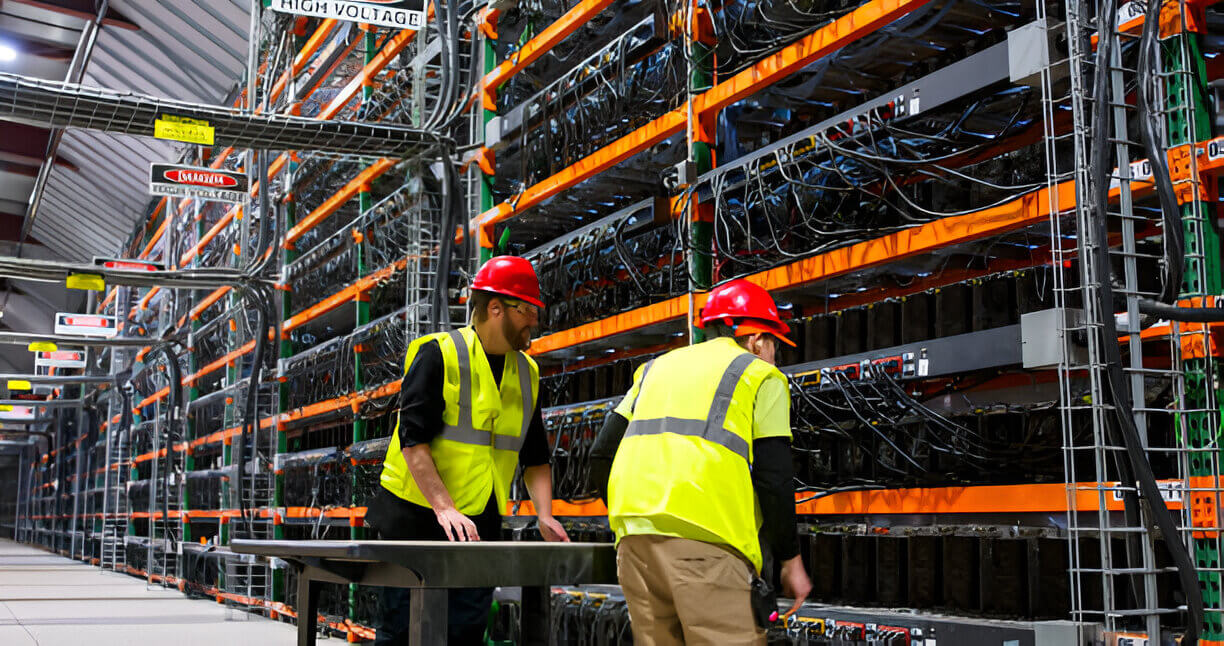Bitcoin has been one of the most popular new revolutionary financial assets nowadays, generating a fun buzz among investors, techies, and normal everyday folks. Being the first decentralized cryptocurrency, participation in the global financial system that does not rely on banks can be availed through Bitcoin. The most common means to acquire Bitcoins is by mining, a process involving solving mathematical problems validating the transactions on the blockchain. However, the Bitcoin mining traditional way is resource-intensive; in reality, it requires much investment in hardware, electricity, and technical know-how. This is where cloud mining comes in, enabling a headache-free start for almost anyone interested in mining without the hassles.
What is Bitcoin Mining?
Before plunging into cloud mining, you have to learn all the basics regarding Bitcoin mining. Bitcoin mining is basically the process through which new Bitcoins are generated and transaction validation happens on the blockchain. In a nutshell, miners get access to powerful computers that go about solving a special complex cryptographic puzzle, and once it is solved, the first one gets to add a new block of transactions into the chain. In return, the miner is rewarded with a certain number of Bitcoins, known as a block reward.

Mining has two general functions: the introduction of new Bitcoins and the protection of the Bitcoin network’s security and integrity. Unfortunately, mining has become a lot more difficult in the course of years because of the size of the Bitcoin network. Mining today needs major and expensive equipment called Application-Specific Integrated Circuits (ASICs) and the consumption of huge amounts of electricity. Also, the competition miners face today is making profits very hard for individual miners.
The Challenges of Traditional Bitcoin Mining
Initially, mining Bitcoin can be a very daunting task for potential new entrants:
High Initial Investment:
The setup of a mining operation entails substantial upfront capital investment in hardware. For example, ASIC miners, which are the most efficient specific to Bitcoin mining, come at a price tag of a few thousand dollars each, and there is also the need for a miner to install other cooling and supporting general infrastructure to create favorable operating conditions.
Electricity Bills:
Mining Bitcoin is a high-energy activity, and since power bills can eat good margins into profits, it becomes less interesting for miners. So much so that even doing without very profitable mining in some regions does not justify the high cost of electricity.
Technical Know-How:
A little technical expertise is needed to set up and maintain the hardware, as well as an ability to stay informed on new developments in the Bitcoin network.
Noise and Heat:
Mining hardware produces quite a lot of noise as well as heat, which usually causes disturbance in a home.
Decreasing profitability through these network joinings makes mining increasingly difficult, thus lowering the chances of earning a block reward. Furthermore, it is also complicated due to halving events that reduce the block reward from time to time, making it less profitable for single miners.
What is Cloud Mining?
That problem is solved by providing cloud mining concerning trading in bitcoins mined. Simply speaking, cloud mining means the rental of mining power from some distant data center. Instead of purchasing and maintaining their own hardware, users purchase a mining contract from a cloud mining vendor, and the provider takes care of hardware, electricity, maintenance, etc., while the customers make up for it by netting a share of the mined bitcoins as per the amount of mining power rented from them.
Cloud mining is received very largely because it is accessible and convenient since one doesn’t need to invest a lot in it upfront or need any technical skills to participate. Therefore, it does present a very fascinating option for many would-be entrants.
Advantages of Cloud Mining
Low Entry Barrier:
Cloud mining makes it possible for users to mine even with small start-ups. Almost every cloud mining provider has flexible, among other things, contracts that would suit different budgets so that they can be affordable to many.
No Hardware Maintenance:
Users need not worry about buying the mining hardware, its installation, or maintenance as everything is taken care of by the cloud mining service provider.
Zero Electricity Costs:
Since users keep their hardware in remote data centers, they do not pay for the electricity, and therefore there is a good chance that they will make profits, especially in parts of the world where electricity bills are high.
Scalability:
Users engage in great flexibility when it comes to increasing their mining operations. Suppose a user wants to increase his or her mining power; an additional contract can easily be purchased, and there is no need for further mining hardware.
Accessibility:
This is accessible to anyone who has an internet connection. The user can monitor their mining activity and earnings through a user-friendly dashboard offered by the cloud mining service.
Risks and Considerations
While cloud mining has advantages, it also has disadvantages. Here are some points for you to ponder before going into cloud mining:
Scams and Frauds:
The cloud-mining industry has witnessed its share of scams and fraudulent operators. Thus, it is essential to choose a well-reputed cloud mining provider with tangible results behind its name, such as Bitcoin-Cloudmining.io. Be wary of those who promise too-good-to-be-true returns or come with extremely high upfront payments on their contracts.
Profitability:
Mining contracts usually come with a concatenation of fees like maintenance charges and electricity charges to munch the profits. Another important thing you need to consider is the fluctuating price of Bitcoin: if the price were to depreciate significantly, it could completely render your cloud mining operation unprofitable.
Contract Terms:
Carefully review the terms that govern your mining contract. Some contracts enforce a fixed minimum duration of their operation, while others allow the early termination of the contract by the customer. However, know anything that references hidden fees or clauses cutting into your margin.
Regulatory Risks:
The regulatory framework pertaining to cryptocurrencies is and has been, a moving target, wherein any change in the regulatory landscape may have serious repercussions on the profitability prospects for cloud mining. One should get acquainted with the jurisdictions’ legal standing of Bitcoin and cloud mining operations.
Conclusion:
Cloud mining offers a comfortable and easy way to start Bitcoin mining without large initial investments or technical know-how. By renting mining power from a far-off data center, users can efficiently participate in the Bitcoin network and earn rewards without conventional mining hassles. Trusted platforms have in fact even made cloud mining something better, offering an accessible, efficient, and secure way for cloud mining for miners of all levels.
That said, keep in mind that cloud mining can be risky due to the nature of the industry. Choosing platforms going through the specifics of the contract, and timely updates on market conditions will promote a better chance for you in this cloud mining arena.
You might also like: Buy Crypto on eTrade
